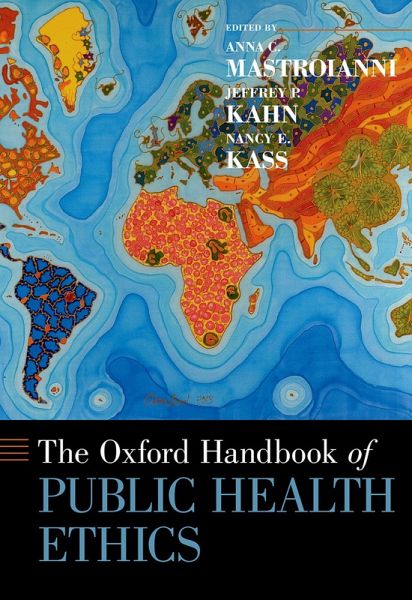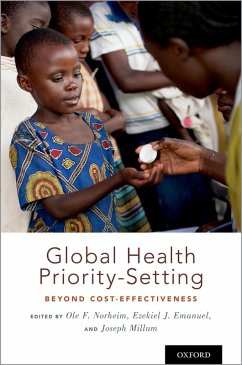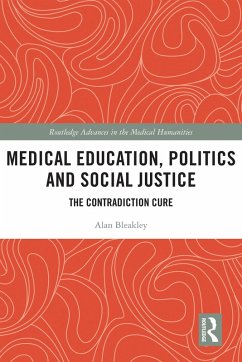
The Oxford Handbook of Public Health Ethics (eBook, PDF)
Versandkostenfrei!
Sofort per Download lieferbar
122,95 €
inkl. MwSt.
Weitere Ausgaben:

PAYBACK Punkte
61 °P sammeln!
Natural disasters and cholera outbreaks. Ebola, SARS, and concerns over pandemic flu. HIV and AIDS. E. coli outbreaks from contaminated produce and fast foods. Threats of bioterrorism. Contamination of compounded drugs. Vaccination refusals and outbreaks of preventable diseases. These are just some of the headlines from the last 30-plus years highlighting the essential roles and responsibilities of public health, all of which come with ethical issues and the responsibilities they create. Public health has achieved extraordinary successes. And yet these successes also bring with them ethical te...
Natural disasters and cholera outbreaks. Ebola, SARS, and concerns over pandemic flu. HIV and AIDS. E. coli outbreaks from contaminated produce and fast foods. Threats of bioterrorism. Contamination of compounded drugs. Vaccination refusals and outbreaks of preventable diseases. These are just some of the headlines from the last 30-plus years highlighting the essential roles and responsibilities of public health, all of which come with ethical issues and the responsibilities they create. Public health has achieved extraordinary successes. And yet these successes also bring with them ethical tension. Not all public health successes are equally distributed in the population; extraordinary health disparities between rich and poor still exist. The most successful public health programs sometimes rely on policies that, while improving public health conditions, also limit individual rights. Public health practitioners and policymakers face these and other questions of ethics routinely in their work, and they must navigate their sometimes competing responsibilities to the health of the public with other important societal values such as privacy, autonomy, and prevailing cultural norms. This Oxford Handbook provides a sweeping and comprehensive review of the current state of public health ethics, addressing these and numerous other questions. Taking account of the wide range of topics under the umbrella of public health and the ethical issues raised by them, this volume is organized into fifteen sections. It begins with two sections that discuss the conceptual foundations, ethical tensions, and ethical frameworks of and for public health and how public health does its work. The thirteen sections that follow examine the application of public health ethics considerations and approaches across a broad range of public health topics. While chapters are organized into topical sections, each chapter is designed to serve as a standalone contribution. The book includes 73 chapters covering many topics from varying perspectives, a recognition of the diversity of the issues that define public health ethics in the U.S. and globally. This Handbook is an authoritative and indispensable guide to the state of public health ethics today.
Dieser Download kann aus rechtlichen Gründen nur mit Rechnungsadresse in A, B, BG, CY, CZ, D, DK, EW, E, FIN, F, GR, HR, H, IRL, I, LT, L, LR, M, NL, PL, P, R, S, SLO, SK ausgeliefert werden.













